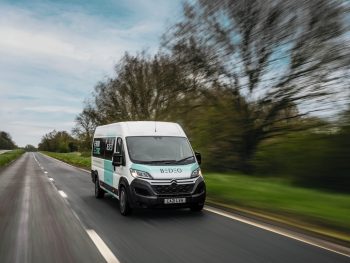UK vehicle electrification specialist Bedeo has called on the UK government again for immediate action to support the large van fleet sector in meeting net zero targets.

Its open letter to government officials warns that the large van sector may fall dangerously short of the UK’s ZEV and net-zero targets without urgent intervention.
The UK ZEV mandate targets a 70% market share for zero-emission new vans by 2030, with a full phase-out of diesel LCV sales by 2035.
But Bedeo reckons even the ‘greenest’ fleet owners will have a difficulty to turn more than 50% of their fleet into zero-emissions due to range, cost and payload barriers.
In its open letter, the business outlines three immediate policy changes required to support adoption of retrofit and hybrid electrification.
Firstly, it’s calling for range extender technologies to be eligible for inclusion in alternative fuelled vehicle (AFV) grant programmes to reflect their critical role in transitioning fleets.
It also wants amendments to include range extender vehicles in the B-licence 4.25-tonne weight limit, currently granted only to fully electric, fuel cell or hydrogen-powered vehicles.
Finally, Bedeo has called for retrofit range extender solutions to be acknowledged in official pathways to net zero as “viable, scalable and urgently needed transitional technology”.
The business has also written to the Ed Miliband, Secretary of State for Energy Security and Net Zero, and the Financial Secretary to the Treasury setting out these points and calling for urgent clarification on why range extender technology is permitted in London black cabs but not currently recognised for goods transport vehicles under the same technological principle.
Osman Boyner, founder and CEO of Bedeo, said: “According to McKinsey & Company, LCVs are the single largest contributor to logistics-related emissions, responsible for 40%. If the UK wants to lead on decarbonisation, we need pragmatic and scalable solutions now – and retrofit is one of the most impactful tools we have to reduce emissions without delay or disruption.”

